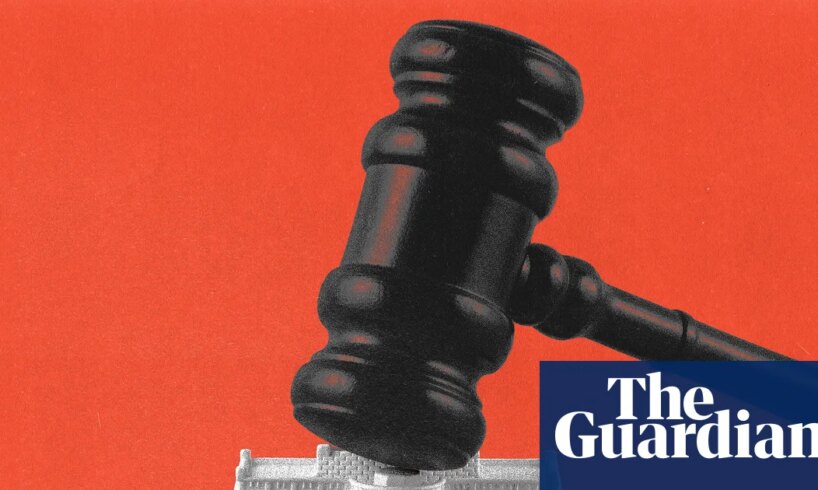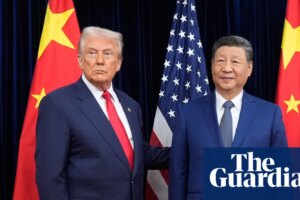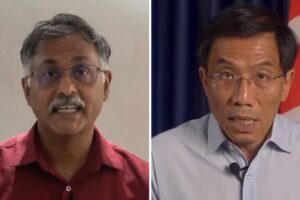
Donald Trump thrives on emergencies. He cried havoc on the very first day of his second term, declaring a national emergency caused by an “invasion” of “illegal aliens” from Mexico. He has since invoked emergencies more than any president since the passage of the National Emergencies Act in 1976.
Next Wednesday, he faces another of his own making, as the US supreme court hears oral arguments on whether his globe-shaking signature economic policy – tariffs – is legally valid.
Trump sees emergency everywhere. From the flow of illegal drugs and precursors from Mexico, China and, somehow, Canada; the international criminal court’s investigation of US and Israeli officials; the US’s “insufficient energy production, transportation, refining, and generation”; the Brazilian government’s tussle with social platform X and its prosecution of former president Jair Bolsonaro; crime in Washington DC; and the US’s longstanding trade deficits.
The emergencies have served Trump to secure funding to build a border wall and give him the military responsibility for border enforcement, to allow oil drilling on federal land and keep unprofitable coal plants operating, to deploy the national guard in Washington DC. And, of course, to impose tariffs.
Now, the supreme court is scheduled to hear about some of these, in a case brought by a dozen states challenging Trump’s contention that the International Emergency Economic Powers Act (IEEPA) of 1977 gives the president the power to impose tariffs on imports from every country in the world to defend the nation from Trump’s fanciful list of supposed threats to the nation.
Justices will focus much of their attention on whether IEEPA authorizes the president to levy a tariff – a word that is not mentioned in the text of the law and is, moreover, a form of taxation, over which, per the constitution, Congress has exclusive power. But the court should not lose sight of the broader threat to the nation’s constitutional democracy: Trump’s abuse of the notion of a national emergency to grant himself absolute power to govern unconstrained by anybody.
IEEPA gives the president authority “to deal with any unusual and extraordinary threat, which has its source in whole or substantial part outside the United States, to the national security, foreign policy, or economy of the United States, if the president declares a national emergency with respect to such threat”.
Yet as the plaintiffs noted, using this “to impose immense and ever-changing tariffs on whatever goods entering the US he chooses, for whatever reason he finds convenient to declare an emergency, the president has upended the constitutional order and brought chaos to the American economy”. Rather than solving national emergencies, Trump is using emergency powers to manufacture one.
Consider the trade deficit, which occupies an unusually dark place in Trump’s imagination – not the result of voluntary, mutually beneficial exchanges between US and foreign businesses and consumers, but the consequence of a twisted world order in which devious foreign countries take advantage of the US.
Whatever it may be, it is neither extraordinary nor unusual. The US began running consistent trade deficits half a century ago, in 1975, bolstered by the US’s low savings and the government’s large budget deficits, which require pulling capital from abroad and hence boosting demand for foreign goods and services.
Unauthorized immigration, which has been growing for quite some time, also fails to meet the “extraordinary” and “unusual” bars, fueled by US employers’ longstanding demand for foreign workers. And even if it did, a tariff on Mexican goods would do next to nothing to solve the problem. Hurting the Mexican economy is more likely to encourage Mexicans to seek jobs north of the border.
It is beyond me how a Canadian TV ad featuring clips of Ronald Reagan warning about the high cost of tariffs and extolling the virtues of free trade amounts to an emergency that justifies the added 10% tariff with which Trump retaliated against Ottawa last Monday. (The White House has not specified what authority the US is using to impose these tariffs.) For that matter, tariffs on legally imported goods from Mexico or Canada cannot possibly end the “emergency” created by drug cartels’ illegal drug shipments to the US. Nor can they curb Americans’ fentanyl addiction.
Trump’s capricious deployment of tariffs is provoking a new set of problems. Inflation has remained relatively subdued – largely because importers anticipated tariffs and stocked up on imports beforehand – but prices on intermediate inputs and consumer goods are starting to rise, denting the competitiveness of American exporters. And most economists expect the inflation shock to hit soon.
Most critically, Trump’s trade war is getting hot.
The financial upheaval caused by the worldwide volley of tariffs he unleashed on “Liberation Day” in April calmed down in subsequent months. And yet the world economy remains close to the edge: earlier this month Beijing signaled it was ready to pull the nuclear option in its confrontation with Washington, imposing stringent export controls on rare earths and other minerals over which it holds a near supply monopoly and which are indispensable for defense industries and the entire modern economy.
In a meeting on Thursday at the margins of the Asia-Pacific Economic Cooperation summit in South Korea, presidents Xi Jinping and Trump agreed to a one-year truce in which China would suspend the latest rare earth export controls and the US would relax its limits on technology exports to Chinese companies, among other concessions. But the odds are shortening that the trade war launched by Trump with no congressional input will go terribly wrong for the US economy and national security. The supreme court might take note.
The trade war is unlikely to be over even if the court bars Trump from using IEEPA. There are other statutes he can rely on. Section 201 of the Trade Act allows the president to impose tariffs or other restrictions if imports are causing or threatening “serious injury” to a domestic industry. Section 301 also allows the president to impose duties to respond to unfair trade practices by another country.
The statutes, however, come with limits. Before retaliating under 301, for instance, the US trade representative must perform an investigation, consult with the country in question and publish its proposed action and the factual findings on which it is based. If not stop the trade war, these constraints could slow it down.
Critically, by putting some limit on Trump’s wanton belligerence, the supreme court could, for once, send the message that crying wolf – or “national emergency!” – does not offer blanket cover for the president to run roughshod over the checks and balances essential to liberal democracy.





